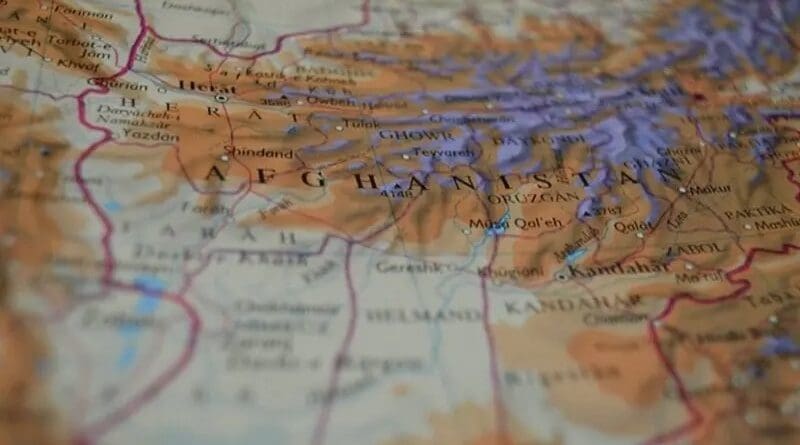Are Regional Differences Over Afghanistan Irreconcilable? – Analysis
By IPCS
By D Suba Chandran
An earlier commentary on this issue asked the following: can there be a region-led and region-owned solution for stability in Afghanistan? Can the stakeholders be brought together?
For any regional initiative to achieve success in stabilizing and securing Afghanistan, Pakistan, Iran, India and countries of Central Asia remain crucial stakeholders. In particular, Pakistan, Iran and India are three countries that have the potential to both stabilize and destabilize Afghanistan. All three hold larger strategic interests in Afghanistan; unfortunately, these interests have the potential to both build and break Afghanistan.

Of the three countries, Pakistan is extremely apprehensive of the future of Afghan stability, in terms of external influences and investments in Kabul. Undoubtedly, Rawalpindi (and to an extent Islamabad) would like to have a stable, if not too strong Afghanistan. The military and the ISI in Pakistan would like to ensure that the future leadership in Kabul is not strong enough, either politically or militarily, to build Afghan resistance against Pakistan’s influence. More than Indian presence in Afghanistan, a strong Afghanistan antagonistic towards Islamabad, is not in Pakistan’s interests. While Pakistan is well aware of Karzai’s position, it cannot take the Taliban’s support for granted; given that if the Taliban come to power, they may have their own perspectives.
The first and foremost strategic interest of Pakistan in Afghanistan is, to ensure that the regime in Kabul is under substantial influence of Islamabad. This has been the primary reason for the military and ISI getting upset when the US and some European countries, especially Germany, attempted to open a direct line with the Taliban, bypassing Pakistan. The fact that the Taliban also accepted to negotiate with the West, without the ISI’s knowledge, made Pakistan even more apprehensive.
The second strategic objective of Pakistan in Afghanistan, aims to ensure that there remains no space for India in any future Afghan settlement. While the traditional belief on “strategic depth” is being repudiated by many within Pakistan, the contemporary Pakistani fear is over Indian presence in Kabul and in multiple towns in Afghanistan, closer to the Durand Line. Pakistan loathes Indian investments in economic and infrastructural projects in Afghanistan, for the following reasons – it provides much needed space for India to create a positive image in Afghanistan, especially in Kabul; allows the international community to entertain New Delhi to proceed further and expand Indian investments; it brings Kabul closer to New Delhi; and most importantly, Indian presence along the Durand Line will exacerbate the insurgency movements within Pakistan, especially in Balochistan.
India’s strategic interests are almost on the lines of what Pakistan is objecting. As a regional economic power, India has the ability to invest in Afghanistan and expand further. Since India is unlikely to send its troops or provide any hard core military assistance to Afghanistan, it would like to use economic and infrastructural investments as a strategy to influence Kabul and more importantly, to win the goodwill of Afghans, especially the Pashtuns. Road projects within Afghanistan and the north-south corridor linking Iran’s coast with Central Asia, are an essential aspect of this larger strategic interest.
Though New Delhi’s rhetoric would link the Indian presence in Afghanistan as a gateway to Central Asia, the real interest is to ensure that Kabul does not become the backyard of Islamabad and Rawalpindi. Perhaps, a section within the strategic community may also consider using Afghanistan in terms of how Pakistan is using Kashmir. There is also an exaggerated fear that Afghanistan, after 2014, will become the hub of a regional jihad led by the Taliban and assisted by the ISI. While Pakistan is an important factor in India’s calculations in Afghanistan, it has larger economic and infrastructural interests as well.
Iran also has crucial long term interests in Afghanistan, which generally go unnoticed in the global debate over Afghanistan, as Tehran is seen as rogue and unruly. In fact, if only the international community (read the US) realizes the strategic location of Iran in stabilizing Afghanistan and overcome the stated jingoistic positions, Tehran could play a greater role in securing and stabilizing Afghanistan.
Iran’s primary strategic interests in Afghanistan are three fold – ethnic, bilateral and international. Shiite Iran has serious concerns over the status and political position of the Hazara minority in Afghanistan, who are Shias. Generally marginalized in the political calculations led by the Pashtuns and the northern tribes, the Hazaras were also prosecuted during the Taliban regime in the 1990s. Equally importantly, Tehran is also apprehensive of Iran-Afghan relations, which have been generally ignored in the regional political equation. While Iran-Pakistan and Afghanistan-Pakistan relations have been widely read and appreciated, the Iran-Afghan relationship has not been given enough importance. Finally, there is a deep concern within Iran on the possibility of the US using any democratic or non-Taliban regime as a proxy against Tehran. In this context, any presence of international troops, especially that of the US after 2014, will be seen with great suspicion.
Clearly, the regional stakeholders have serious differences within. But, are these absolutely irreconcilable? Can these three countries be brought together with a common minimum agenda in Afghanistan?
(The above question would be subsequently answered in the next commentary)
D Suba Chandran
Director, IPCS
E-mail: [email protected]

